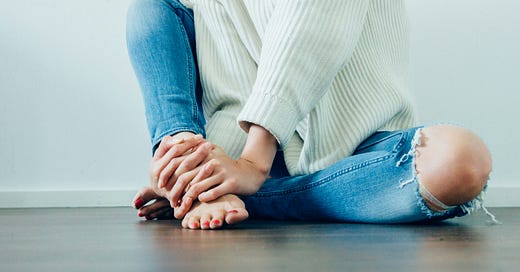
Talking about women’s bodies is like walking through a minefield. There are things you are allowed to say, and things you aren’t. Most of the time it’s popular culture dictating the script, and if you depart from it, well, you’d better watch out. (And that’s just the women: men who dare to comment, even charitably, often meet a worser fate.)
But the problem is, there are women with massive injuries from this minefield, and I’m tired of them having to suffer silently.
Last year I was invited to speak to a group of priests about what women want from their pastors. (Isn’t that beautiful? I felt so privileged.) In the Q&A after the main talk, somehow I ended up sharing why I think so many women today are angry, and when I got home, this essay was written.
I’ve given a lot of talks that cover similar ground, but I’ve never published widely on this topic, for the simple reason that I think it is so easily misunderstood. Getting the tone right when talking about women’s deeply wounding personal experiences is hard. I hope I’ve managed it alright. It’s difficult to write something that rejects aspects of culture without having individuals feel judged or alienated in the process. My prayer is that women reading feel more free to be vocal about the pain and injustice that our current culture so often cultivates.
Read Our Bodies, Our Anger at First Things.
Then, please share your thoughts in the comments. Have you, or do you know women who have, been wounded by our culture’s approach to women’s bodies? How do you think we can build a culture that celebrates the unique gifts and challenges of being a woman? What would it take for the next generation of women to be encouraged in their womanhood?




This is an outstanding article, Kerri. I read it just after reading another piece in which a woman treats her own body with profound anger, but an anger that sees the fault in the body itself, and sees no fruit coming forth from the womanly body's uniqueness. Your piece was so much more grounded in the dignity of personhood and the body.
Yessss! I think this is a very, very accurate analysis. I also appreciate how you advocate for men to be part of the solution - which is knowledge and appreciation!